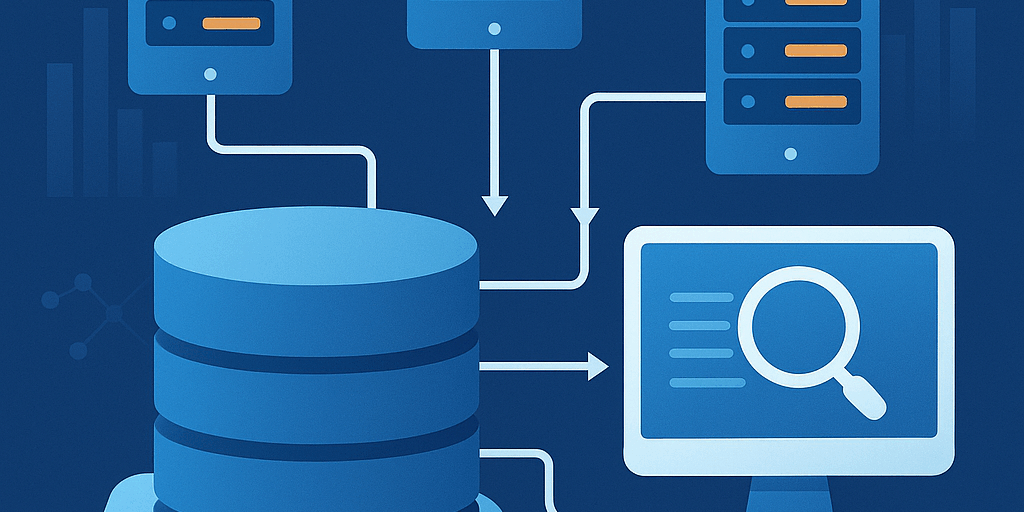In today’s data-driven world, organizations are generating and storing massive amounts of information every second. Whether it’s genomic research, financial transactions, or e-commerce analytics, handling such large-scale datasets requires more than just a traditional search system. This is where a cluster search engine becomes a game-changer.
By distributing data processing across multiple nodes, a cluster search engine allows researchers, data scientists, and enterprises to store, search, and analyze information efficiently without compromising on speed or accuracy. For companies like IROA Technologies, which work with complex and high-volume datasets in metabolomics, such a system is not just a luxury—it’s a necessity.
1. What Is a Cluster Search Engine?
A cluster search engine is a distributed search system designed to process, store, and retrieve data across multiple interconnected servers (nodes). Instead of relying on a single server—which can quickly become overloaded—a cluster search engine spreads the workload, improving speed, fault tolerance, and scalability.
The core principle is parallel processing, which allows different nodes to work on separate tasks simultaneously. This ensures that no matter how large your dataset grows, search and analysis remain fast and reliable.
2. The Growing Challenge of Large-Scale Data
The explosion of digital data has put enormous strain on conventional search solutions. Consider the following:
- Volume: Global data creation is expected to exceed 180 zettabytes by 2025.
- Variety: Data comes in structured, semi-structured, and unstructured forms.
- Velocity: Real-time data streams require instant indexing and retrieval.
Traditional databases and single-server search systems often struggle under these conditions, leading to slow query responses, storage bottlenecks, and increased downtime.
For research-intensive industries—such as biomedical analysis, environmental monitoring, and financial modeling—these limitations can severely impact productivity and accuracy.
3. Key Advantages of a Cluster Search Engine
A. Scalability Without Limits
As your dataset grows, you can add more nodes to your cluster without disrupting the existing infrastructure. This elasticity ensures your system adapts to future data growth without costly overhauls.
B. Lightning-Fast Search Performance
By processing queries in parallel, cluster search engines deliver results in milliseconds, even when searching billions of records. This is crucial for applications like real-time fraud detection or scientific data mining.
C. High Availability and Fault Tolerance
If one node fails, the others continue functioning, ensuring uninterrupted access. Data replication across multiple nodes means your information is safe from hardware failures.
D. Cost-Effective Scaling
You can start with a small cluster and expand gradually. Since nodes can be built with commodity hardware, scaling up is more affordable than upgrading a single massive server.
4. How Cluster Search Engines Benefit Research
In fields like metabolomics, genomics, and climate modeling, datasets can easily reach petabyte levels. For IROA Technologies, this means dealing with highly detailed and complex datasets that must be analyzed with precision and speed.
A cluster search engine allows researchers to:
- Run complex queries quickly without overloading the system.
- Integrate multiple data sources into a unified search environment.
- Perform high-resolution data analysis in real time.
For example, a metabolomics study involving thousands of biological samples can require millions of data points to be processed. A single-server search system would take hours—if not days—to deliver results. A cluster search engine can handle the same workload in minutes.
5. Real-World Use Cases
Scientific Research
Laboratories use cluster search engines to manage experimental data, literature, and analysis results.
Healthcare and Genomics
Hospitals and research institutions rely on them for patient data management and genetic analysis.
E-Commerce
Online marketplaces use them to deliver instant product search results to millions of customers.
Cybersecurity
Threat detection systems process massive volumes of logs and network data in real time.
6. Choosing the Right Cluster Search Engine
When selecting a cluster search engine, consider the following:
- Data Type Compatibility – Can it handle both structured and unstructured data?
- Query Performance – Does it support real-time indexing and retrieval?
- Scalability – How easy is it to add new nodes?
- Security – Does it include data encryption and access controls?
- Integration – Can it work with your existing analytics tools?
For more insights on distributed search architecture and big data management, you can refer to Elasticsearch’s official documentation, which offers an in-depth look at how search clusters operate.
7. How IROA Technologies Leverages Cluster Search Engines
At IROA Technologies, managing complex metabolomics datasets demands both speed and accuracy. Implementing a cluster search engine has enabled faster pattern recognition, improved collaboration across research teams, and significantly reduced data retrieval times.
By integrating a scalable search architecture, IROA Technologies can ensure that scientists spend more time interpreting results and less time waiting for queries to process. This directly accelerates research timelines and enhances data reliability.
8. The Future of Large-Scale Data Management
As artificial intelligence and machine learning continue to evolve, the role of cluster search engines will only grow. They will become integral to predictive analytics, personalized medicine, and automated decision-making systems.
Future developments may include:
- AI-driven query optimization.
- Greater integration with cloud-based platforms.
- Advanced security features for compliance-heavy industries.
Conclusion
In an era where data is both an asset and a challenge, a cluster search engine offers the perfect balance of scalability, speed, and reliability. For industries like biotechnology, finance, and e-commerce, adopting this technology is no longer optional—it’s essential for staying competitive.
At IROA Technologies, we understand the critical role that high-performance search systems play in managing large-scale research data. By integrating a powerful cluster search engine into our workflows, we help researchers transform overwhelming volumes of information into actionable insights—accelerating discovery and innovation in every project.







